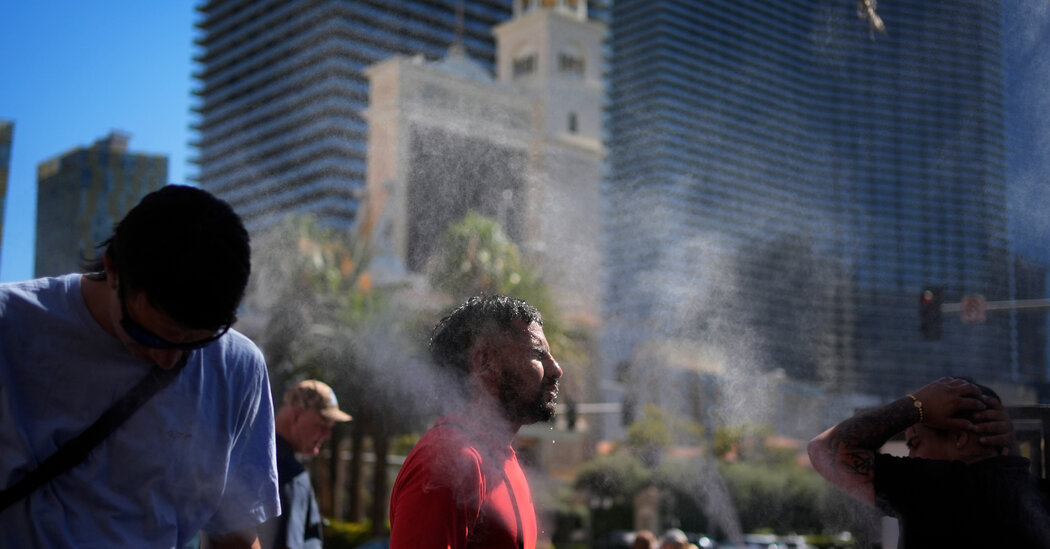A scorching heat wave has swept across the western United States, setting record-high temperatures and causing widespread discomfort for residents. Meanwhile, another heat wave is currently roasting the East Coast, making it feel like an oven in many cities.
In the western U.S., cities like Phoenix, Las Vegas, and Los Angeles have been experiencing extreme heat, with temperatures soaring well above 100 degrees Fahrenheit. Phoenix, in particular, reached a sweltering 118 degrees, breaking previous records for the month of June. The intense heat has prompted officials to issue heat advisories and warnings, urging residents to stay indoors, stay hydrated, and avoid strenuous outdoor activities.
The heat wave in the West is not only making life uncomfortable for residents, but it is also posing a threat to public health. Heat-related illnesses such as heat exhaustion and heatstroke are a real concern in these extreme temperatures, especially for vulnerable populations like the elderly, children, and those with underlying health conditions.
On the East Coast, cities like New York, Washington D.C., and Atlanta are also feeling the heat, with temperatures climbing into the upper 90s and even reaching triple digits in some areas. The combination of high temperatures and high humidity is making it feel even hotter, leading to dangerous heat indices that can cause heat-related illnesses.
As climate change continues to worsen, extreme heat events like these are becoming more frequent and more intense. It is crucial for residents to take precautions during heat waves, such as staying hydrated, wearing light clothing, and seeking out air-conditioned spaces to cool off.
In addition to the immediate health risks posed by extreme heat, there are also long-term consequences to consider. Heat waves can have a negative impact on agriculture, infrastructure, and the economy, and they can also exacerbate existing inequalities in society. It is important for policymakers to take action to mitigate the effects of heat waves and to address the root causes of climate change.
As the heat wave continues to grip the western and eastern United States, it serves as a stark reminder of the urgent need to address climate change and to adapt to the changing climate. We must all do our part to reduce our carbon footprint and to protect our communities from the impacts of extreme heat. Stay safe, stay cool, and take care of yourselves and each other during these hot summer days.


